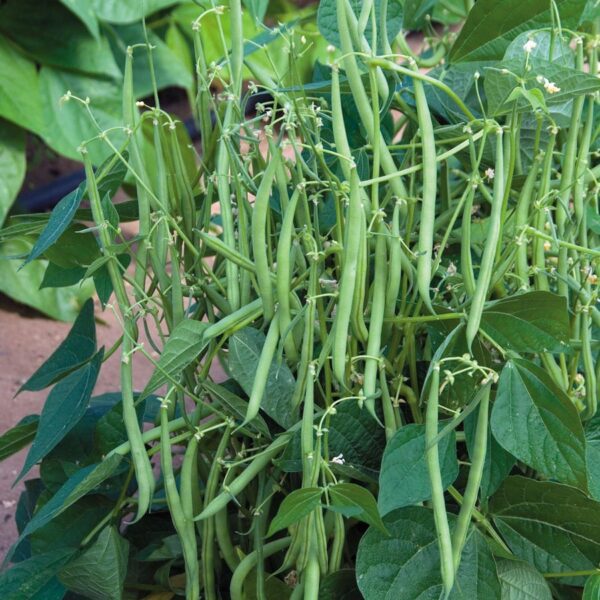
Ballary Babul (Prosophis)
Category: Fencing Species
Tags: #agricultureseedstore, #beej, #BiodiversityOfIndia, #buyseeds, #buyvegetableseeds, #chemicalfreeseeds, #ClimateChange, #ClimateResilientSeeds, #ClimateSmartFarming, #desibeej, #desiseed, #Desiseeds, #FarmStore, #heirloomseed, #heirloomseeds, #homegarden, #homegardeningseeds, #hoogafarms, #hoogaseedkeepers, #MaadiThottamseeds, #naatuvidhai, #nativefoods, #nativevegetableseeds, #naturalfarming, #NaturalFoods, #naturalseeds, #NonGMOseeds, #openpollinatedseeds, #opseeds, #organicfarming, #organicseeds, #RooftopGardening, #RooftopGardenseeds, #SaveNativeSeeds, #SaveOurSeeds, #SaveSeeds, #SayNoToGMO, #seedconservation, #seeddiversity, #seedfarm, #seedkeeperscollective, #seedKeepersNetwork, #seedsavers, #seedsaving, #seedshop, #SeedsOfIndia, #seedstore, #tamilseedsavers, #Terracegardenseeds, #traditionalseed, #traditionalseeds, #traditionalvegetableseeds, #vegetablediversity, #Vegetableseed, #vegetableseeds, #Vidhaigaleperayudham, Agriculture, dubai small ridge giurd seeds, Dubai Small Round Ridge Gourd-Seeds, hooga forms, hooga seeds, hoogaseeds, native seeds, Ridge Gourd-Seeds, seeds, shop, shopping, Vidhai
Ballary Babul is a common name for Prosopis juliflora, a species of flowering tree in the pea family (Fabaceae). This plant is also known by various other names such as Mesquite or Vilayati Babul in different regions. It is native to South America, Central America, and the Caribbean, but has been introduced to many other parts of the world, including India, Africa, and Australia, where it has become both valued and problematic.
Characteristics:
- Appearance: Prosopis juliflora is a thorny, drought-resistant tree that can grow up to 12 meters (about 40 feet) tall. The tree has a dense, spreading canopy with a rough bark. Its leaves are bipinnate, meaning they are divided into small leaflets arranged on either side of a common axis.
- Flowers and Pods: The tree produces small, yellowish-green flowers arranged in cylindrical spikes. These flowers develop into long, narrow pods that contain seeds. The pods are light brown when mature and can be up to 20 cm (about 8 inches) long. The seeds inside are hard and can remain viable for many years.
- Thorns: Prosopis juliflora is well-known for its sharp thorns, which can grow up to several centimeters long. These thorns make the tree difficult to handle and contribute to its invasive nature.
Habitat and Growth:
- Drought Resistance: One of the key features of Prosopis juliflora is its exceptional ability to thrive in arid and semi-arid regions. It can survive in very poor soils, saline conditions, and extreme drought, making it a tough competitor in many ecosystems.
- Invasive Nature: While it is a hardy and resilient tree, Prosopis juliflora is also highly invasive. In regions where it has been introduced, such as parts of India and Africa, it can spread rapidly, outcompeting native vegetation and leading to significant ecological changes.
Uses:
- Fuelwood: In many regions, Prosopis juliflora is valued for its wood, which is hard and dense, making it excellent for fuelwood and charcoal production. The wood burns slowly and generates a lot of heat, which makes it popular for cooking and heating.
- Fodder: The pods of Prosopis juliflora are used as animal fodder, especially in drought-prone areas where other food sources might be scarce. However, the pods have a high sugar content, and excessive consumption by livestock can lead to health issues.
- Soil Stabilization: Due to its deep root system and ability to grow in poor soils, Prosopis juliflora has been used in some areas for soil stabilization and reclamation of degraded lands.
- Traditional Medicine: In some cultures, various parts of the tree are used in traditional medicine. The bark, for example, has been used to treat wounds and skin infections.
Challenges and Problems:
- Invasiveness: One of the biggest challenges with Prosopis juliflora is its invasive nature. It spreads rapidly, often forming dense thickets that displace native plants, reduce biodiversity, and make land unusable for agriculture. In many regions, efforts are underway to control or eradicate the species.
- Impact on Livelihoods: While it provides fuelwood and fodder, the aggressive spread of Prosopis juliflora can reduce the availability of land for agriculture and other uses. In some areas, it has also been linked to declines in groundwater levels due to its deep root system, which extracts large amounts of water from the soil.
- Human and Animal Health: The thorns of the tree can cause injuries to humans and animals, and there are reports of livestock developing health issues after consuming large quantities of the pods.
Management and Control:
- Mechanical Removal: In areas where Prosopis juliflora has become problematic, mechanical removal (uprooting or cutting down the trees) is a common method of control. However, this can be labor-intensive and expensive, and the tree often regrows from the roots.
- Chemical Control: Herbicides are sometimes used to control Prosopis juliflora, but their use can have environmental side effects and is generally considered a last resort.
- Biological Control: Research is ongoing into biological control methods, such as the introduction of insects or pathogens that specifically target Prosopis juliflora. However, these methods must be carefully managed to avoid unintended consequences.
- Utilization: In some areas, there is a focus on turning the invasive species into a resource, such as through the production of biochar, timber, or other products, to reduce its spread and impact.
Cultural and Regional Context:
- India: In India, Prosopis juliflora was introduced during the British colonial period as a way to combat desertification and provide fuelwood. It quickly spread and is now considered a major invasive species in many parts of the country, particularly in the states of Gujarat, Rajasthan, and Tamil Nadu.
- Africa: In Africa, especially in countries like Kenya and Ethiopia, Prosopis juliflora has also become a significant problem, spreading across rangelands and displacing native vegetation. However, efforts to utilize the tree for charcoal and other products are also underway.
Prosopis juliflora, or Ballary Babul, is a plant with both beneficial and problematic aspects, depending on the context. Its hardiness and ability to grow in harsh conditions make it valuable in some situations, but its invasive nature requires careful management to prevent environmental and economic damage
| Weight | 15 g |
|---|
Be the first to review “Ballary Babul (Prosophis)” Cancel reply
Related products
Clove Bean Green Gardening Seeds
₹120.00Original price was: ₹120.00.₹100.00Current price is: ₹100.00. -17%100 varieties Vegetable Seeds Combo Pack
₹7,000.00Original price was: ₹7,000.00.₹6,150.00Current price is: ₹6,150.00. -12%Bush French Green Bean Seeds
₹99.00Original price was: ₹99.00.₹50.00Current price is: ₹50.00. -49%Yellow Bush Bean Gardening seeds
₹120.00Original price was: ₹120.00.₹100.00Current price is: ₹100.00. -17%






Reviews
There are no reviews yet.